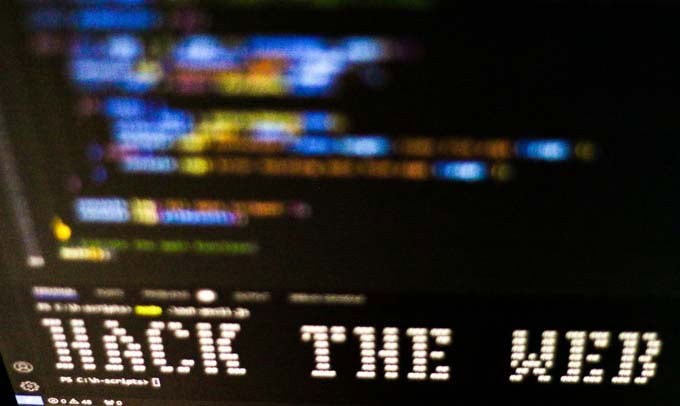EU Whistleblower Directive also serves compliance in Swiss companies
There are legal and ethical standards that a company and its employees have to comply with. But what happens if this is not the case? A company's own compliance management creates clear conditions and should definitely include a reporting system for compliance violations. A new EU whistleblower directive also puts Swiss companies under additional pressure in this regard.

A construction company employs undeclared workers in order to save on AHV and BVG contributions. A bank is engaged in large-scale money laundering. A mechanical engineering company purchases raw materials that are produced in a third world country under questionable working and environmental conditions. And yet another technology company exports power plant components through opaque channels to a state that is subject to international economic embargoes. These (fictitious) examples may be extreme and probably exceptional cases - there are also more "harmless" examples such as that of an employee who secretly downloads paedosexual content from the Internet or that of a sales representative who "fudges" expense claims in his own favour. Be that as it may, all of these examples involve violations of legal, internal or even ethical standards.
Whistleblower protection in Switzerland insufficient
Employees who come across such irregularities are now faced with a dilemma: Should they report the violations? Or does their duty of loyalty to their employer prevent them from doing just that? The fact is that people who report irregularities in companies have only weak legal protection in Switzerland. A bill on "protection in the event of reporting irregularities in the workplace" was shot down by the federal parliament. In terms of protection for whistleblowers, i.e. people who report irregularities, Switzerland now ranks far below the rest of the world. Cases in which company employees go public often end badly: the matter turns into a scandal, and the company concerned has its hands full fighting the threat of damage to its image. The loser in such a case is the employee who started the whole thing: He is held responsible for the damage and dismissed without notice...
Corporate compliance makes sense
For banks and securities dealers in Switzerland, an Compliance function have long been required by law. But in other industries as well, more and more companies, regardless of their size, are recognizing compliance as an integral part of good corporate governance. An effective compliance concept outlines the compliance topics that are central to the company in question and defines the compliance risks. It also regulates reporting to the company management and the board of directors. Last but not least, it also includes a concrete compliance organization. In order to ensure uniform standards, a professional and anonymous whistleblower system is recommended within a compliance management system in this country as well. "The aim of such a whistleblowing system is to provide sufficient protection for whistleblowers in order to avoid risks in connection with compliance violations and to position the company as an exemplary and transparent employer in terms of employer branding," explains Thomas Wittkopf, Managing Director of TELAG AG. This company already provides an integrated whistleblowing system for large corporations and SMEs under the name WhistleTAG. The demand for such a solution could now even increase: In order to better protect both addressees and whistleblowers themselves, the new EU Whistleblower Directive will come into force from 17 December 2021. This regulation obliges companies with 250 or more employees or annual sales of EUR 10 million to have an anonymous whistleblower system. From 2023, the limit will be lowered again, to 50 employees. This also affects Swiss companies that employ staff, partners or suppliers from the EU.
EU Whistleblower Directive requires anonymous reporting system
The EU Whistleblower Directive stipulates that whistleblowers must be offered the opportunity to make their report electronically via an encrypted online system as well as verbally by telephone, but in any case anonymously and securely. "Whistleblower confidentiality must be ensured so that employees have the courage to report a compliance breach in the first place. In practice, we often experience that it is particularly difficult for employees in SMEs, which pride themselves on their open corporate culture, to point out a malpractice. They are afraid of the consequences - ranging from belittlement to mobbing to far-reaching retaliatory measures. That's why, in most cases, they refrain from reporting." With devastating consequences, as the ACFE Report of the Association of Certified Fraud Examiners (ACFE): Thus, the average financial loss amounts to CHF 200,000 - not including the damage to reputation. "Managing directors and boards of directors are responsible, but are often in the dark because employees lack the basis to report a malpractice due to inadequate protection. A professional whistleblowing system offers companies an opportunity for transparency and practiced corporate governance both internally and externally," says Thomas Wittkopf. Conclusion: Even if Switzerland does not have to transpose the EU Whistleblower Directive into national law, it can serve as an instrument against corruption and money laundering in this country as well.
EU Whistleblower Directive: Recommendations for Swiss companies
How does a whistleblower hotline work? This can either exist in a company-internal reporting office or be outsourced to a professional service provider. TELAG is such a service provider, which has been operating an anonymous whistleblower system for companies in the financial and service sectors for 13 years, which meets the requirements of the new EU Whistleblower Directive. The company provides the software for the anonymous processing of digital and telephone reports as well as 24-hour availability in 24 languages. TELAG's whistleblower system also includes report qualification, case management and, if necessary, an ombudsman office with an independent law firm.
- A professional whistleblowing system is considered best practice for groups and SMEs and is particularly recommended as soon as the company has branches in other EU countries and/or employs staff, partners, suppliers from the EU area.
- The reporting process must work both by telephone and in writing, including a feedback loop to the whistleblower, and ensure the anonymity of the whistleblower.
- The commitment of the executives ("tone from the top") underpins the seriousness with an anonymous whistleblower system and pays off the credibility. Spurred on by the public discourse on ethics and morals in companies, the new generation of employees and managers is demanding business ethics and transparency.
- Last but not least, preventive action is much cheaper than cost-intensive clean-up work in the event of a compliance breach, which regularly entails irreparable damage to reputation as well as considerable financial consequences - on average CHF 200,000 according to the ACFE report of 20218.
Further information: www.telag.ch/whistletag









